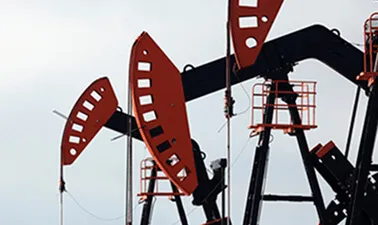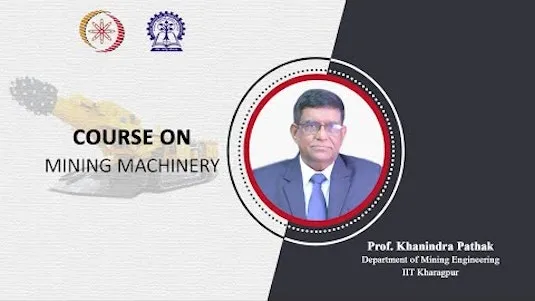
Unconventional Reservoir Geomechanics 
This course focuses on the geomechanics of unconventional reservoirs, which are being increasingly used to produce hydrocarbons. It covers the use of horizontal drilling and multi-stage hydraulic fracturing to extract hydrocarbons from extremely low permeability reservoirs. It also examines the impact of these techniques on the global energy landscape, with hundreds of thousands of wells already drilled. ▼
ADVERTISEMENT
Course Feature
![]() Cost:
Cost:
Free
![]() Provider:
Provider:
Edx
![]() Certificate:
Certificate:
Paid Certification
![]() Language:
Language:
English
![]() Start Date:
Start Date:
Self paced
Course Overview
❗The content presented here is sourced directly from Edx platform. For comprehensive course details, including enrollment information, simply click on the 'Go to class' link on our website.
Updated in [March 06th, 2023]
This course, Unconventional Reservoir Geomechanics, is designed for both geoscientists and engineers. It covers topics ranging from the physical properties of reservoir rocks at the nanometer- to centimeter-scale to the state of stress on fractures and faults at the basin-scale. The course follows the textbook Unconventional Reservoir Geomechanics by Mark Zoback and Arjun Kohli, available in print or electronic versions.
The course is divided into three parts. The first part covers topics that become progressively broader in scale, starting with laboratory studies of the microstructural, mechanical, and flow properties of reservoir rocks and concluding with field observations of fractures, faults, and the state of stress in unconventional basins. The second part focuses on the process of stimulating production using horizontal drilling and multi-stage hydraulic fracturing. Important engineering concepts will be reviewed, including microseismic monitoring, production and depletion, well-to-well interactions, and hydraulic fracture propagation. The final part addresses the environmental impacts of unconventional oil and gas development, in particular the occurrence and management of induced seismicity.
Two units will be released each week on edX. Each unit will be comprised of 3-5 video modules 10-20 minutes in length. Videos can be accessed at any time before the end of the course. Grading will be based entirely on 6 homework assignments. Homeworks are due on edX at the start of each week at 07:00 UTC (00:00 PST). Students who select the verified enrollment option and earn at least 70% on the homeworks will receive a certificate from edX.
[Applications]
Upon completion of Unconventional Reservoir Geomechanics, students will be able to apply their knowledge to the development of unconventional reservoirs. They will be able to understand the physical properties of reservoir rocks, the state of stress on fractures and faults, and the process of stimulating production using horizontal drilling and multi-stage hydraulic fracturing. Additionally, they will be able to identify and manage the environmental impacts of unconventional oil and gas development, such as induced seismicity.
[Career Paths]
1. Unconventional Reservoir Geomechanics Engineer: Unconventional Reservoir Geomechanics Engineers are responsible for designing and implementing drilling and hydraulic fracturing operations in unconventional reservoirs. They must have a thorough understanding of the physical properties of reservoir rocks, the state of stress on fractures and faults, and the process of stimulating production. As the demand for unconventional resources continues to grow, the need for experienced Unconventional Reservoir Geomechanics Engineers will also increase.
2. Unconventional Reservoir Geomechanics Consultant: Unconventional Reservoir Geomechanics Consultants provide technical advice and guidance to oil and gas companies on the design and implementation of drilling and hydraulic fracturing operations in unconventional reservoirs. They must have a deep understanding of the physical properties of reservoir rocks, the state of stress on fractures and faults, and the process of stimulating production. As the demand for unconventional resources continues to grow, the need for experienced Unconventional Reservoir Geomechanics Consultants will also increase.
3. Unconventional Reservoir Geomechanics Researcher: Unconventional Reservoir Geomechanics Researchers are responsible for conducting research on the physical properties of reservoir rocks, the state of stress on fractures and faults, and the process of stimulating production. They must have a thorough understanding of the fundamentals of Unconventional Reservoir Geomechanics and be able to apply their knowledge to develop new technologies and techniques. As the demand for unconventional resources continues to grow, the need for experienced Unconventional Reservoir Geomechanics Researchers will also increase.
4. Unconventional Reservoir Geomechanics Instructor: Unconventional Reservoir Geomechanics Instructors are responsible for teaching students about the physical properties of reservoir rocks, the state of stress on fractures and faults, and the process of stimulating production. They must have a thorough understanding of the fundamentals of Unconventional Reservoir Geomechanics and be able to apply their knowledge to develop new technologies and techniques. As the demand for unconventional resources continues to grow, the need for experienced Unconventional Reservoir Geomechanics Instructors will also increase.
[Education Paths]
Recommended degree paths:
1. Petroleum Engineering: Petroleum engineering is a field of engineering that focuses on the exploration, production, and transportation of oil and gas. It involves the application of geology, geophysics, and engineering principles to the development of oil and gas fields. Petroleum engineers are responsible for designing and implementing the processes and technologies used to extract oil and gas from the ground. As the demand for energy increases, the need for petroleum engineers is expected to grow.
2. Geology: Geology is the study of the Earth's physical structure, composition, and history. It involves the study of rocks, minerals, and fossils, as well as the processes that shape the Earth's surface. Geologists use their knowledge of the Earth's history to explore for oil and gas, and to develop strategies for managing natural resources. With the increasing demand for energy, geology is becoming an increasingly important field of study.
3. Environmental Engineering: Environmental engineering is a field of engineering that focuses on protecting the environment and developing sustainable solutions to environmental problems. Environmental engineers use their knowledge of engineering principles and environmental science to develop solutions to environmental issues such as air and water pollution, waste management, and climate change. As the world becomes increasingly aware of the need to protect the environment, the demand for environmental engineers is expected to grow.
4. Data Science: Data science is a field of study that combines mathematics, statistics, and computer science to analyze large datasets. Data scientists use their knowledge of data analysis and machine learning to develop insights from data and to create predictive models. With the increasing availability of data, data science is becoming an increasingly important field of study.
Course Provider

Provider Edx's Stats at AZClass
This course focuses on the geomechanics of unconventional reservoirs that are increasingly being used to produce hydrocarbons. It covers the extraction of hydrocarbons from extremely low permeability reservoirs using horizontal drilling and multistage hydraulic fracturing. It also studies the impact of these technologies on the global energy landscape, having drilled hundreds of thousands of wells. Learners gain knowledge of the physical properties of reservoir rocks at the nanometer to centimeter scale. This includes understanding the microstructure, mechanics and flow properties of reservoir rocks. This knowledge can be applied to the development of unconventional oil and gas reservoirs, which are becoming increasingly important in the global energy landscape.
Discussion and Reviews
0.0 (Based on 0 reviews)
Explore Similar Online Courses

Building a Text-Based Bank in Java

Developing AI Vision Apps Using Microsoft Cognitive Services

Python for Informatics: Exploring Information

Social Network Analysis

Introduction to Systematic Review and Meta-Analysis

The Analytics Edge

DCO042 - Python For Informatics

Causal Diagrams: Draw Your Assumptions Before Your Conclusions

Whole genome sequencing of bacterial genomes - tools and applications

Mining Engineering

The Future of Mining?


Start your review of Unconventional Reservoir Geomechanics